September was a much lighter reading month than July and August, though given how much I read in July and August that’s hardly surprising. It’s also fair to say that I got bogged down in Sándor Márai’s The Rebels which I should probably have simply bailed on. I think it was Emma at Bookaround who talked once about it being a warning sign when you keep putting a book down then forgetting to pick it up again even though you’ve time you could be reading in.
Nothing this month that will trouble my end of year list (maybe Eversion if I have an SF category, but I suspect it’s more a fun read than a lasting one, we’ll see). Still, some new authors and if I never took the risk of new writers not connecting with me I’d never discover the new ones that I love.
Picnic in the Storm, Yukiko Motoya (translated by XXX)
There’s been a trend lately of slightly surreal/absurd short stories which shed light on ordinary life, often women’s lives. They tend to be recognisable situations but through an off-kilter lens. Here for example a saleswoman keeps having to bring new clothes to a customer who won’t leave her changing room. In another, a woman goes to the gym against the advice of her co-workers who think she’ll become unfeminine, yet as she grows increasingly muscular her husband seems utterly unaware. In the longest a wife finds that she’s becoming more like her dullard husband, not just in the usual way of couples picking each other’s habits but more fundamentally in mind and even body.
The stories are well written, but didn’t really connect with me. It may be that this sort of quiet surrealism simply isn’t my thing. It would be wrong to call these whimsical, there’s serious points being made, but I didn’t find them substantial. If though you’re a Hiromi Kawakami fan this could be a real find for you.
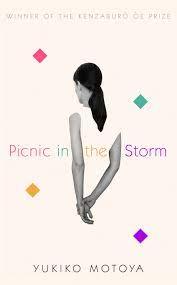
Cop Killer, Sjöwall & Wahlöö (translated by Thomas Teal)
This was the ninth of the Martin Beck novels and it’s a clever one. A murder takes place in a quiet provincial town. Separately, two cops on car patrol end up in a shootout with some fairly amateurish burglars that ends up with a cop dead and a nationwide manhunt. So far so typical in many senses, but the small town is home to the man convicted of the murder in the first book. It’s been so long in series he’s now been released. Has he returned to his old ways?
The murder investigation is the star here, but the manhunt is also very well done as is the need to juggle the two investigations. It’s a very solid entry in the series and I love the callback to the first book.
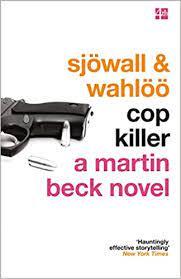
Eversion, Alastair Reynolds
This is a fun one. An early 19th Century polar expedition seeks a passage through the ice to some curious structure. The ship’s doctor, a drug addict, is troubled by memories that don’t belong and is caught between the two shipboard factions – crew and expedition. Is there more going on though?
Yes, yes there is, because quite soon after (this is on the back cover so not really a spoiler) disaster strikes. The doctor wakes up from disturbing dreams. It’s the late 19th Century and he is troubled by memories that don’t belong but that seem oddly close to the polar expedition he’s part of…
This is huge fun. It’s very much boys’ own adventure stuff but through an SF lens and Reynolds is clearly enjoying himself. It’s a clever twist on the old time loop concept except here it’s never quite the same situation, but more an echo. This one works best if you already know your SF fairly well, but if you do it’s thoroughly enjoyable.
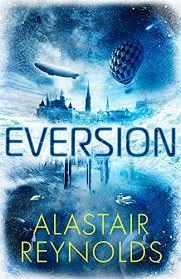
Dark Neighbourhood, Vanessa Onwuemezi
Bit more on this one than most of the others I’m talking about this month.
By way of context, I like to mix short story collections in among my wider reading. It breaks things up and I think often it’s good for the collections many of which aren’t really designed to be read in one go from start to finish. So, in September, I tried Vanessa Onwuemezi’s debut collection published by the generally reliable Fitzcarraldo Editions.
The first and for me best story is the eponymous Dark Neighbourhood itself. In some fantastical quasi-post-apocalypse setting people queue endlessly to go through a portal into what exactly? Nobody knows save that surely it must be better. The narrator is a trader in junk, detritus of the pre-whatever-happened world, objects often given value as much by our attachment to them as for their utility.
It’s an interesting story with a lot of resonance. It also includes a stylistic technique that Onweumwezi uses from time to time. Unexplained gaps in the sentence, pauses which perhaps reflect speech or perhaps add emphasis. On this story it works well, but the technique is repeated in some of the later stories and for me repetition diminished it.
Otherwise, this collection didn’t quite land for me though I do plan to retry one of the stories, Cuba, a story about a hotel cleaner. It’s actually available for free online from Granta here. I’ve been fairly critical here, but I do think some readers will really respond to Onwuemezi (it just doesn’t look like I’m one of them). I’d recommend therefore following that link and giving her Cuba a try, it’s short but gives you a feel for her style. Onwuemezi is a very poetic writer, and I think poetic fiction requires a connection of sensibility between reader and writer even more than most forms of fiction.
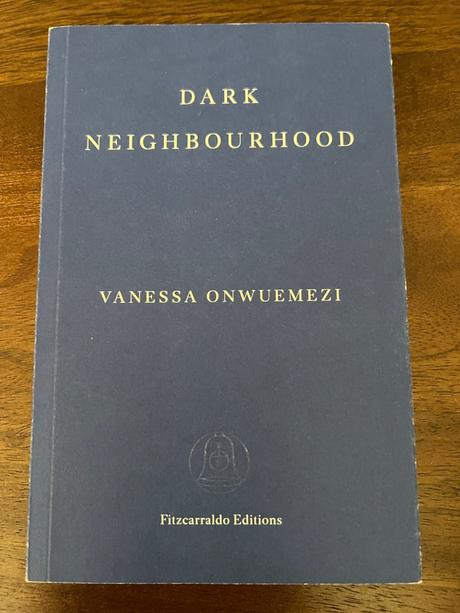
The Master Key, Masako Togawa (translated by Simon Grove)
So the premise is great. A residential building inhabited only by woman, each of whom has her own story to tell (or to hide…). There is though a master key that’s kept behind reception. Anyone who can get hold of that can gain access to any room they want.
No surprise that someone does, and what follows is secrets unearthed, feuds pursued, and murder.
This is a mix of character vignettes of various women in the building and the wider story of the consequences of the stolen key. The problem is I’m not a golden age crime reader and here the explanation for what’s going on is so convoluted it requires a character to literally spend the last few pages explaining it all in a long section of exposition. I can forgive a bit of exposition, but in a film at least when the detective unveils the culprit in the drawing room it’s dramatic. Here it’s just an over complex plot that only makes sense once the author basically tells you what’s been going on.
If you’ve read it and loved it please do say. It may just be that this isn’t my genre.
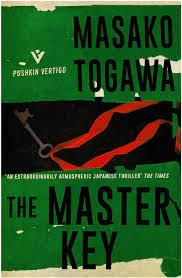
The Rebels, Sándor Márai (translated by George Sirtesz)
There’s something endlessly fascinating about the end of the Austro-Hungarian Empire. It’s a period and place which produced some truly great writers and which has inspired many others.
In The Rebels it’s May 1918 and a group of young men in a provincial town are awaiting their inevitable call-up. One has already been called and returned home missing an arm. They create a society which rejects convention, stealing objects for the sheer joy of it and praising each other according to how daring the theft is and how useless the object stolen. They embrace absurdity.
Into this comes a middle aged actor who becomes one of their circle, but if you’re wondering whether it’s healthy for a middle aged man to be be hanging out with a bunch of teenagers, well, that’s a good question.
The book opens with one of the group finding that one of the others has been cheating them at cards. But which? It’s the first sign that things are not as idyllic as they appear, but with the prospect of slaughter at the front for all of them it was always a false idyll. From there we get into issues of class, wealth and more.
It’s an interesting book and the concept is strong. Unfortunately it didn’t wholly work for me. There’s a big set piece scene involving the boys staging a private play with the actor and the scene becomes a bit overblown (theatrical in fact, but in a book that’s mostly naturalistic). Worse though the scene goes on far too long, for me dissipating the building tension that Márai had created. The result was that I felt the book lost some momentum as it came into the home straight, so that the end when it came was less shattering and more a bit of a relief. Stu wrote about this here and I think liked it a bit more than I did.
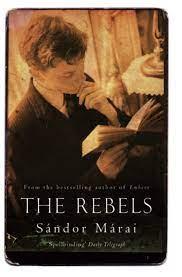
And there we are! I’ll post October fairly soon.
